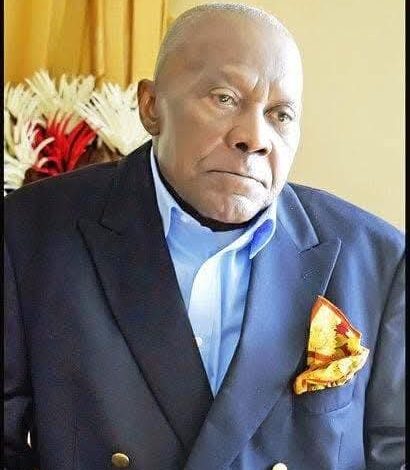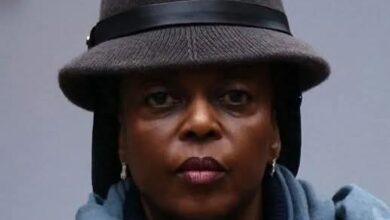FRANCIS ARTHUR NZERIBE: THE BRAIN BEHIND THE ANNULMENT

One major atrocity credited to Arthur Nzeribe who died Sunday was the formation of the Association for Better Nigeria, used to annul Nigeria’s best election held June 1993.
Nzeribe, born in Oguta Imo State was the mastermind of the group, which was not in anyway a mass movement.
It was set up by the military intelligence to perpetuate General Ibrahim Babangida’s rule till 1997. zeribe’s ABN came in handy in 1993, when it was used to scuttle the June 12, 1993 election won overwhelmingly by Chief MKO Abiola’s.
P.M. News found an essay by Michael Orodare of Neusroom in June 2021 a fair account of the somewhat treasonable role of the ABN, with Nzeribe as the mastermind.
Classified in many reports as a shadowy group and a willing tool in the hands of Nigeria’s former military head of state General Ibrahim Babangida, the role played by the Association for Better Nigeria (ABN) in the annulment of the June 12, 1993, presidential election remains indelible.
Although the personality of Babangida may have dwarfed the many atrocities of ABN and its promoters, the group prepared the ground for the declaration that scuttled what has been described as the most credible election in Nigeria’s history: The presidential contest between MKO Abiola of the Social Democratic Party (SDP) and Bashir Tofa of the National Republican Convention (NRC).
How ABN was formed.
ABN was formed after the Babangida regime abolished all political parties and created two national parties – NRC and SDP in 1991.
The New York Times described ABN as “a lobbying group of wealthy businessmen, politicians and military officers who had led a highly visible campaign urging General Babangida to remain in office at least four more years”.
Although it claimed it had millions of members, ABN’s only known leaders were Arthur Nzeribe, Brigadier Haliru Akilu and Abimbola Davies. “The primary objective of the ABN was to keep Ibrahim Babangida in power and maintain the military administration that has governed Nigeria for so long,” a report by the Immigration and Refugee Board of Canada says.
To achieve its objective, the ABN put up billboards in Abuja with the message ‘Four More Years’, implying that Babangida should stay in power for another four year term.
“The intensity of the ABN’s pro-government campaigns led many observers to conclude that the federal military government was behind the activities of the association,” another report says.
ABN and the 1993 Election.
After years of military rule, Babangida promised to hand over power to a civilian president on August 27, 1993. He set up the National Electoral Commission (NEC) and appointed a Professor, Humphrey Nwosu as Chairman..
The Presidential election between Abiola and Tofa was billed for June 12, 1993. Two days before the election, members of the ABN filed a suit before the Abuja High Court asking NEC not to hold the election.
On the eve of the election (June 11) Justice Bassey Ikpeme ordered the suspension of the election but NEC ignored the order and went ahead citing Decree 13 of 1993 which ousted the courts’ jurisdiction with regard to creating impediments to the transition to civil rule programme.
While the results were trickling in, ABN members approached an Abuja High Court again asking it to stop the announcement of results.
“Justice Dahiru Saleh was around to handle it, he didn’t assign it to any other judge. He decided to hear the matter himself,” journalist Richard Akinnola wrote in his book ‘A Mandate Buried Alive’. “Though the suit filed was Motion on Notice, where the other party, that is, NEC would be heard, Saleh decided to hear the matter ex parte in Chambers, stopping further announcements of the results.”
Saleh ordered NEC to halt the release of the election results on the grounds that the election ought not to have been held in the first place. NEC complied with the ruling but headed for the Court of Appeal to challenge the order.
“In that appeal, we attached all the results of the election…showing that Abiola overwhelmingly won the election,” Nwosu wrote in his book “Laying the Foundation for Nigeria’s Democracy: My Account of June 12, 1993, Presidential Election and Its Annulment”.
On June 23, 1993, a day after NEC filed its appeal, Babangida nullified the election, and suspended NEC.
One major atrocity credited to Arthur Nzeribe who died Sunday was the formation of the Association for Better Nigeria, used to annul Nigeria’s best election held June 1993.
Nzeribe, born in Oguta Imo State was the mastermind of the group, which was not in anyway a mass movement.
It was set up by the military intelligence to perpetuate General Ibrahim Babangida’s rule till 1997. zeribe’s ABN came in handy in 1993, when it was used to scuttle the June 12, 1993 election won overwhelmingly by Chief MKO Abiola’s.
P.M. News found an essay by Michael Orodare of Neusroom in June 2021 a fair account of the somewhat treasonable role of the ABN, with Nzeribe as the mastermind.
Classified in many reports as a shadowy group and a willing tool in the hands of Nigeria’s former military head of state General Ibrahim Babangida, the role played by the Association for Better Nigeria (ABN) in the annulment of the June 12, 1993, presidential election remains indelible.
Although the personality of Babangida may have dwarfed the many atrocities of ABN and its promoters, the group prepared the ground for the declaration that scuttled what has been described as the most credible election in Nigeria’s history: The presidential contest between MKO Abiola of the Social Democratic Party (SDP) and Bashir Tofa of the National Republican Convention (NRC).
How ABN was formed.
ABN was formed after the Babangida regime abolished all political parties and created two national parties – NRC and SDP in 1991.
The New York Times described ABN as “a lobbying group of wealthy businessmen, politicians and military officers who had led a highly visible campaign urging General Babangida to remain in office at least four more years”.
Although it claimed it had millions of members, ABN’s only known leaders were Arthur Nzeribe, Brigadier Haliru Akilu and Abimbola Davies. “The primary objective of the ABN was to keep Ibrahim Babangida in power and maintain the military administration that has governed Nigeria for so long,” a report by the Immigration and Refugee Board of Canada says.
To achieve its objective, the ABN put up billboards in Abuja with the message ‘Four More Years’, implying that Babangida should stay in power for another four year term.
“The intensity of the ABN’s pro-government campaigns led many observers to conclude that the federal military government was behind the activities of the association,” another report says.
ABN and the 1993 Election.
After years of military rule, Babangida promised to hand over power to a civilian president on August 27, 1993. He set up the National Electoral Commission (NEC) and appointed a Professor, Humphrey Nwosu as Chairman..
The Presidential election between Abiola and Tofa was billed for June 12, 1993. Two days before the election, members of the ABN filed a suit before the Abuja High Court asking NEC not to hold the election.
On the eve of the election (June 11) Justice Bassey Ikpeme ordered the suspension of the election but NEC ignored the order and went ahead citing Decree 13 of 1993 which ousted the courts’ jurisdiction with regard to creating impediments to the transition to civil rule programme.
While the results were trickling in, ABN members approached an Abuja High Court again asking it to stop the announcement of results.
“Justice Dahiru Saleh was around to handle it, he didn’t assign it to any other judge. He decided to hear the matter himself,” journalist Richard Akinnola wrote in his book ‘A Mandate Buried Alive’. “Though the suit filed was Motion on Notice, where the other party, that is, NEC would be heard, Saleh decided to hear the matter ex parte in Chambers, stopping further announcements of the results.”
Saleh ordered NEC to halt the release of the election results on the grounds that the election ought not to have been held in the first place. NEC complied with the ruling but headed for the Court of Appeal to challenge the order.
“In that appeal, we attached all the results of the election…showing that Abiola overwhelmingly won the election,” Nwosu wrote in his book “Laying the Foundation for Nigeria’s Democracy: My Account of June 12, 1993, Presidential Election and Its Annulment”.
On June 23, 1993, a day after NEC filed its appeal, Babangida nullified the election, and suspended NEC.




